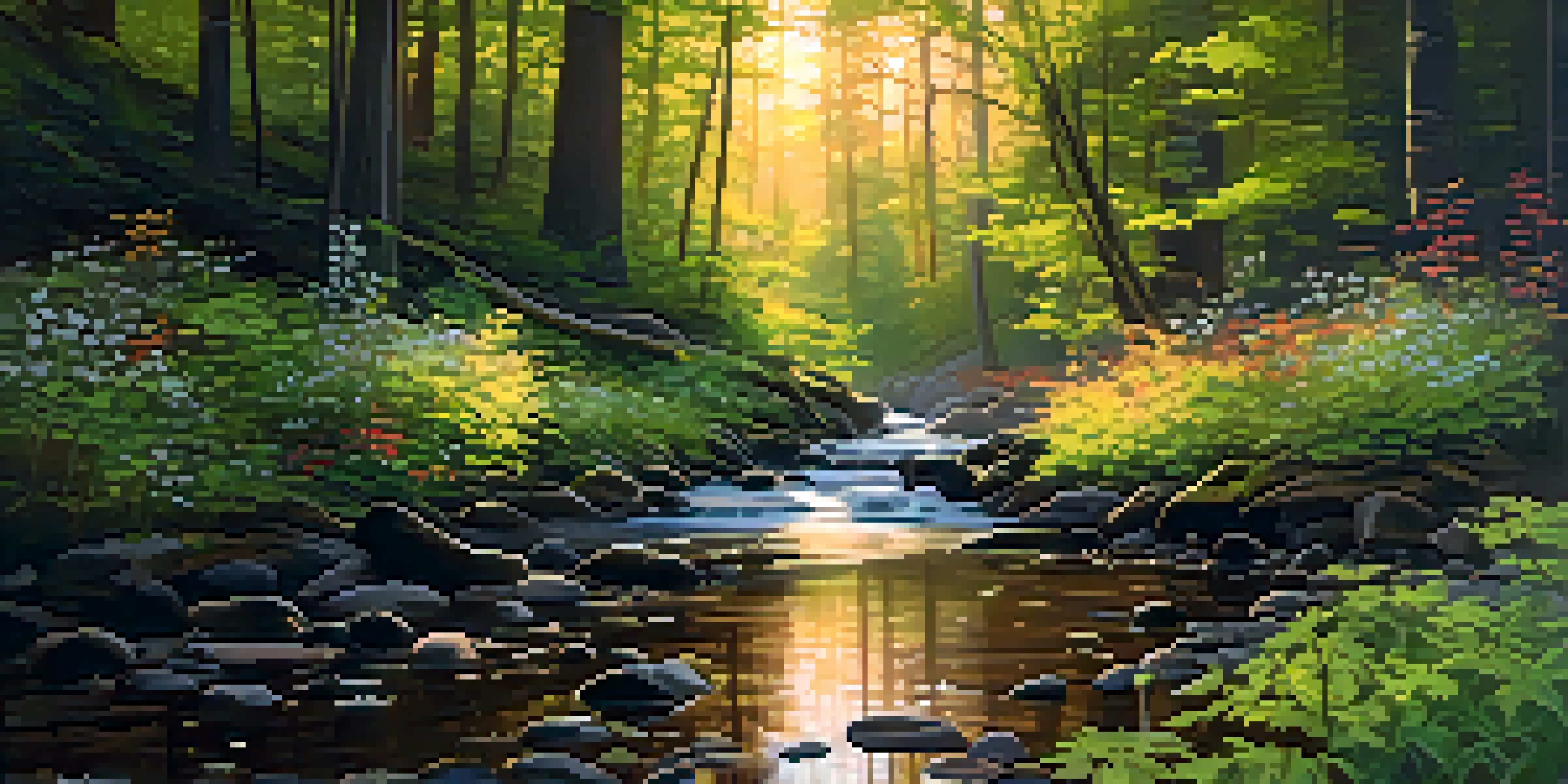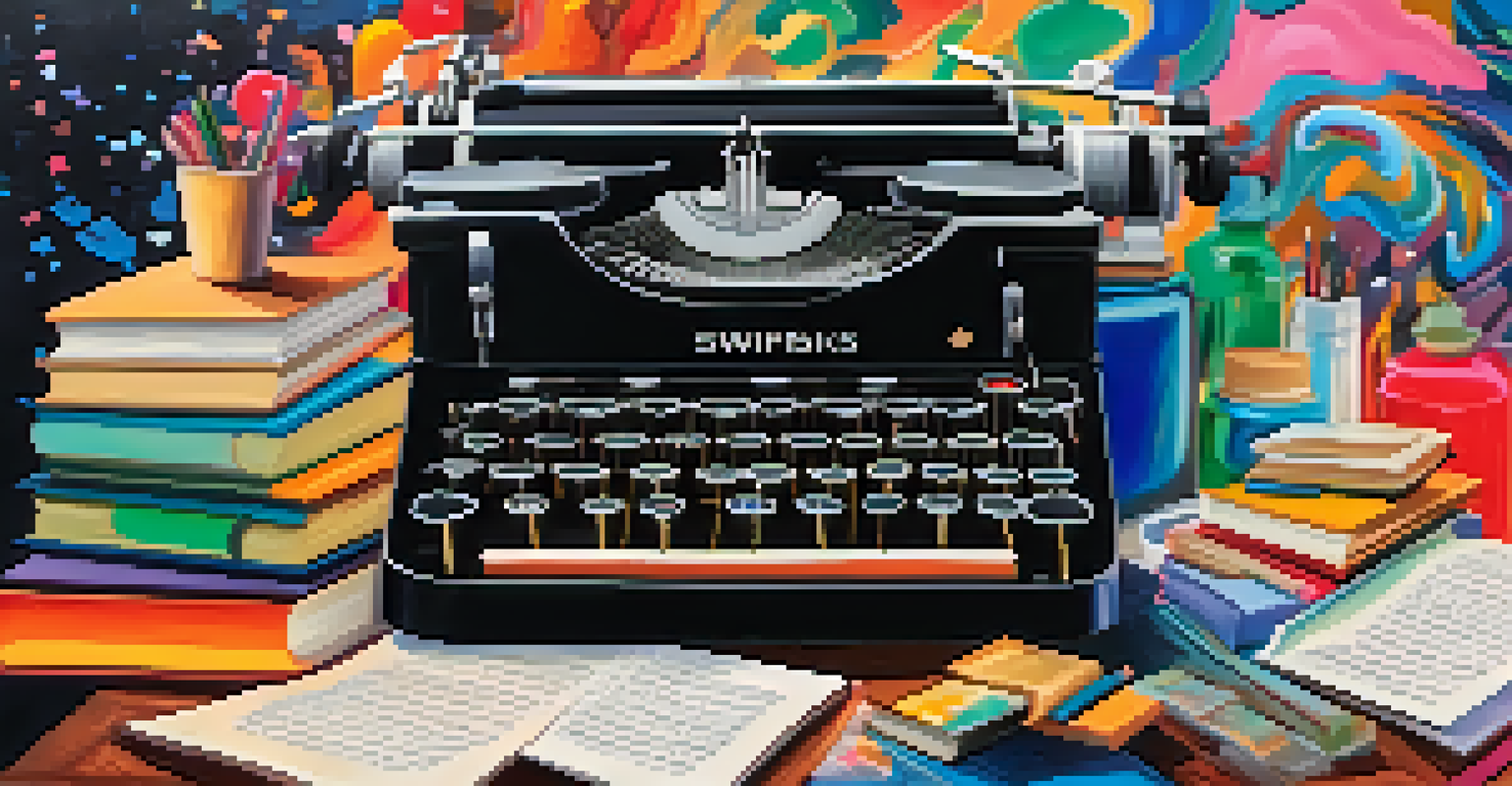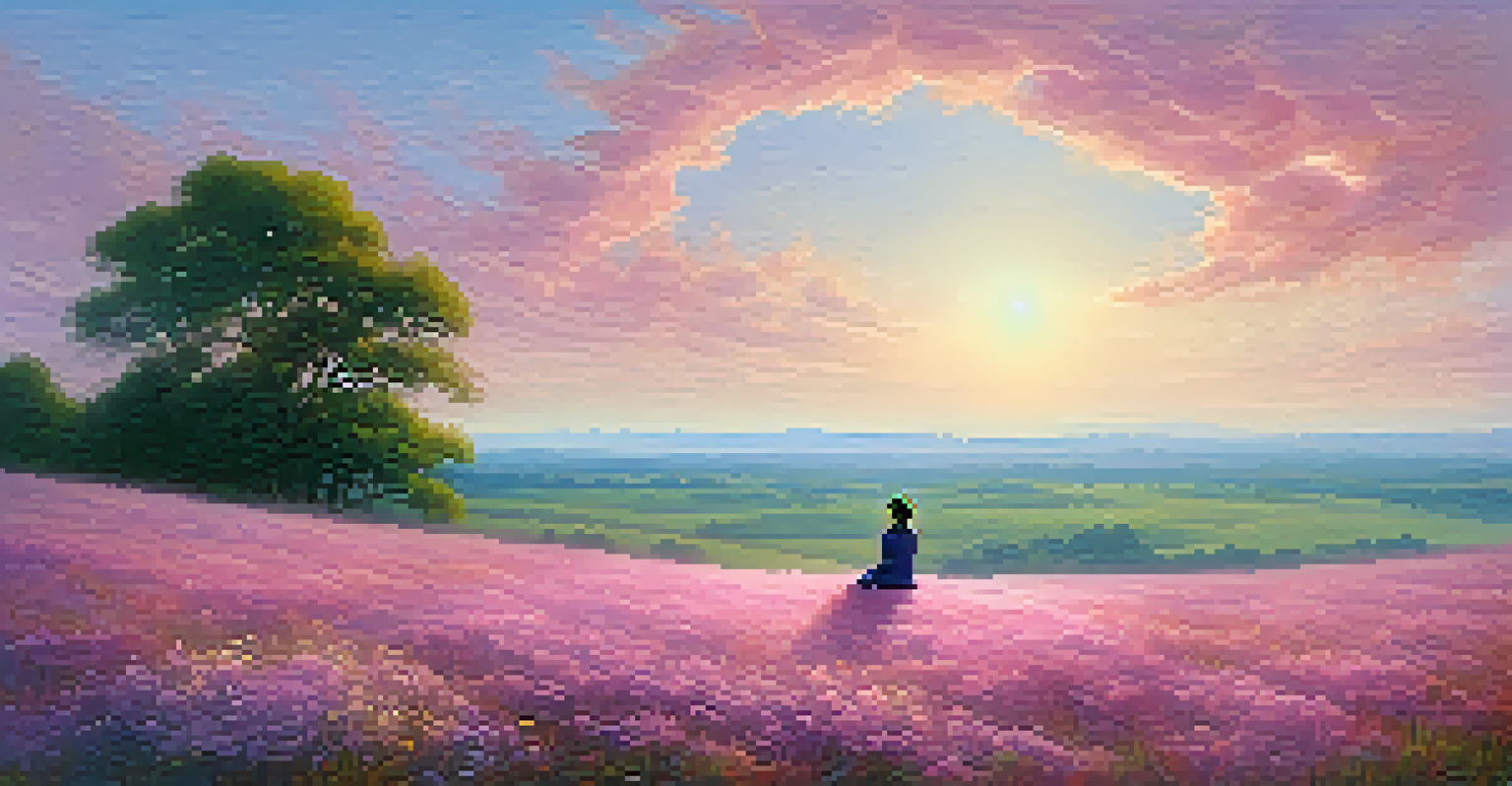Psychedelics in Literature: Expanding the Boundaries of Thought

Understanding Psychedelics and Their Impact on Creativity
Psychedelics, substances that alter perception and cognition, have fascinated humans for centuries. They have been associated with profound experiences that can lead to expanded consciousness. For authors, these experiences can serve as catalysts for creativity, pushing the boundaries of traditional storytelling.
I think that the psychedelic experience is a journey into the unknown, and in that journey, we can discover the latent potential of our minds.
By engaging with altered states of mind, writers can tap into insights that may otherwise remain hidden. This exploration often leads to unique narrative structures and innovative themes. For instance, the beat generation embraced psychedelics, shaping their works with elements of spontaneity and surrealism.
As we delve into the relationship between psychedelics and literature, it's essential to consider how these substances challenge conventional thought. They invite readers and writers alike to question reality, identity, and the very nature of existence itself.
Historical Context: Psychedelics in Literary Movements
Throughout history, various literary movements have intertwined with the use of psychedelics. The Romantic poets, for example, often sought inspiration from nature and altered states of consciousness, albeit without modern psychedelics. Their works are infused with emotional depth and a sense of transcendence, hinting at experiences that resonate with psychedelic exploration.

The 20th century saw a significant increase in the discussion around psychedelics, particularly during the counterculture movement. Authors like Aldous Huxley and Jack Kerouac openly explored their experiences with these substances in their writings. This era marked a revolution in literary expression, as conventional norms were challenged and new forms emerged.
Psychedelics Fuel Creative Exploration
Psychedelics can serve as catalysts for creativity, allowing writers to explore unique narrative structures and innovative themes.
Today, contemporary writers continue to draw from this rich history, using psychedelics as a lens through which to view the world. Their works reflect a blending of personal experience with broader societal themes, offering readers a deeper understanding of the human condition.
Psychedelics as Tools for Self-Discovery in Literature
Many authors have reported that psychedelics can facilitate profound self-discovery. This journey inward often reveals hidden truths, emotions, and ideas that authors can weave into their narratives. For instance, the introspective nature of psychedelic experiences can lead to rich character development and complex story arcs.
Reality is that which, when you stop believing in it, doesn’t go away.
Take, for example, the works of authors like Virginia Woolf, whose stream-of-consciousness style mirrors the fluidity of thought experienced under psychedelics. Her explorations of identity and consciousness offer insights that resonate with readers seeking deeper understanding. This connection between personal experience and literary expression is a hallmark of psychedelic-influenced literature.
Ultimately, the use of psychedelics in writing can lead to a more authentic exploration of the self. Writers who embrace these experiences often create works that resonate with readers on a personal level, inviting them to embark on their own journeys of self-discovery.
Psychedelics and the Expansion of Narrative Structures
One fascinating aspect of psychedelics in literature is their potential to expand narrative structures. Traditional storytelling often adheres to a linear progression, but psychedelics can inspire authors to break free from these confines. This freedom allows for non-linear narratives, fragmented timelines, and dream-like sequences that reflect the complexities of human thought.
Authors like Thomas Pynchon and Gabriel García Márquez have embraced these unconventional structures, creating works that challenge readers to engage actively with the text. Their narratives often mimic the unpredictable nature of psychedelic experiences, inviting readers to explore multiple layers of meaning. This approach not only enriches the reading experience but also reflects the multifaceted nature of reality.
Historical Ties to Literary Movements
Literary movements, from the Romantics to the counterculture of the 20th century, have utilized psychedelics to challenge conventional thought and inspire new forms of expression.
By experimenting with narrative form, writers can create a sense of immersion that mirrors the psychedelic experience. This innovative storytelling invites readers to lose themselves in the text, akin to the way one might lose themselves in a psychedelic journey.
Themes of Consciousness and Reality in Psychedelic Literature
A prominent theme in literature influenced by psychedelics is the exploration of consciousness and reality. These works often grapple with questions of perception, existence, and the nature of truth. Authors use their experiences to challenge established norms, inviting readers to reconsider their understanding of reality.
For instance, the works of Philip K. Dick frequently delve into the nature of consciousness and the fabric of reality. His narratives blur the lines between the real and the surreal, reflecting his own experiences with psychedelics. Through such explorations, readers are encouraged to question their perceptions and consider the possibility of alternate realities.
This theme resonates deeply in today's society, where individuals are increasingly seeking to understand their place in a complex world. Psychedelic literature serves as a mirror, reflecting the struggles and aspirations of those on a quest for meaning and connection.
The Ethical Considerations of Psychedelics in Literature
While the exploration of psychedelics in literature offers intriguing insights, it also raises ethical considerations. The romanticization of drug use can lead to misconceptions about their effects and risks. It’s crucial for writers to approach the subject with a sense of responsibility, acknowledging both the potential benefits and dangers of psychedelics.
Additionally, the portrayal of psychedelics in literature can impact public perception and policy. Writers have a unique platform to shape narratives around these substances, and their choices can influence societal attitudes. By presenting balanced perspectives, authors can contribute to a more informed dialogue surrounding psychedelics.
Ethical Considerations in Literature
Writers must approach the portrayal of psychedelics responsibly, acknowledging both their potential benefits and risks while shaping public perception.
Ultimately, the ethical considerations surrounding psychedelics in literature call for a thoughtful approach. By blending creativity with responsibility, writers can engage readers in meaningful conversations about the complexities of the human experience.
The Future of Psychedelics in Literature
As society continues to evolve, so too does the conversation around psychedelics in literature. With increasing interest in mental health and alternative therapies, the role of psychedelics in creative expression is gaining renewed attention. This shift opens up new possibilities for writers to explore themes of healing, consciousness, and interconnectedness.
Moreover, the ongoing research into the therapeutic benefits of psychedelics may inspire a new wave of literary exploration. Authors may draw from scientific findings to craft narratives that reflect the intersection of art and science. This fusion has the potential to enrich the literary landscape, offering readers fresh perspectives on age-old questions.

Looking ahead, the future of psychedelics in literature appears bright. As more writers embrace these experiences, we can expect a diverse array of voices and stories that challenge our understanding of reality and the human experience.